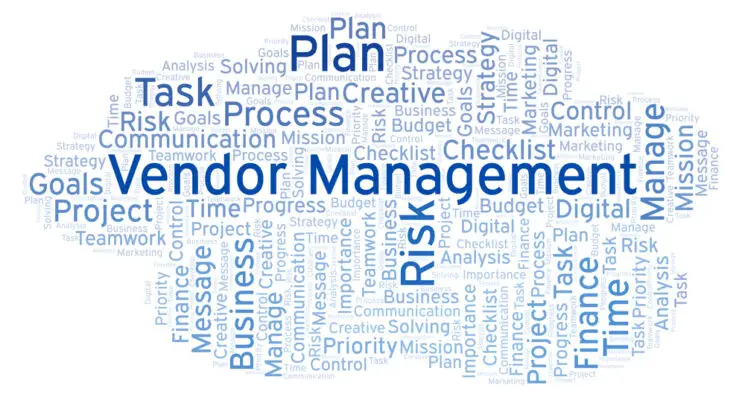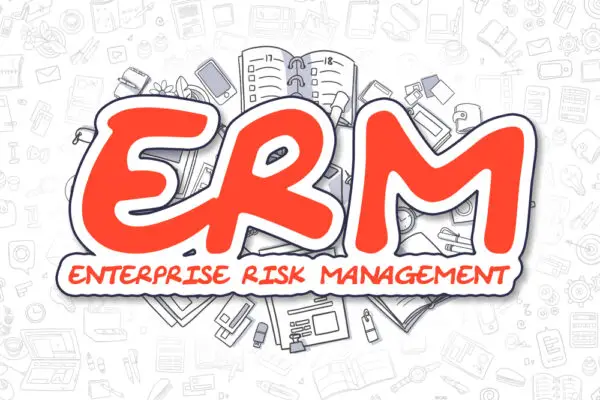Business continuity management (BCM) is developing a plan to ensure that an organization can continue to operate in the event of a major disruption. The role of the project manager is crucial in business continuity management, as they are responsible for initiating a comprehensive bcp project and ensuring that all aspects of the project plan are completed and implemented successfully.
The project manager is responsible for developing the business continuity plan and ensuring it meets the organisation’s project requirements. They will also be responsible for coordinating the plan’s implementation and testing it to ensure it is effective. In addition, the project manager will monitor the plan’s progress and update it as necessary.
The project manager is also responsible for communicating with all stakeholders in the business continuity plan. This includes top management, employees, suppliers, customers, and other interested parties. As per the role of the project manager in risk management, the manager needs to update everyone on the plan’s status and what they need to do to ensure its success.
A business continuity plan (BCP) is a document that outlines how a business will continue to operate during and after an interruption or disaster. The goal of a BCP is to keep the business running with as little downtime as possible.
The project manager is responsible for leading the team that develops the BCP. This includes conducting a risk assessment to identify potential business and operations threats. The project manager also works with department heads to create contingency plans for each type of threat.
Once the BCP is developed, the project manager’s role shifts to implementation. This includes working with all project team members to ensure they understand their roles and responsibilities during an interruption or disaster. The project manager also oversees the testing of the BCP to ensure it is effective.
Effective implementation of BCM practices is crucial for organizational resilience, requiring strong leadership to align theoretical plans with practical actions during emergencies.
Finally, the project manager is responsible for maintaining the BCP on an ongoing basis. This includes updating the document as needed and conducting regular tests to ensure it remains relevant and effective. On top of having project management knowledge, project managers and senior management need to understand business continuity planning.
The project manager ensures that the organization’s BCM plan is developed and implemented effectively. This includes:
- Identifying potential risks to the organization and developing strategies to mitigate these risks
- Coordinating with other departments to ensure that all aspects of the BCM plan are addressed
- Developing and conducting training exercises to ensure that employees are prepared to implement the BCM plan
- Monitoring changes in the organizational environment and updating the BCM plan accordingly
- Evaluating the effectiveness of the BCM plan and making recommendations for improvement
The project manager will coordinate with the business continuity manager and is responsible for developing and implementing plans to keep an organization running during and after a disruptive event. The project manager plays a vital role in business continuity management (BCM) by overseeing the development and implementation of plans and coordinating with other departments to ensure that all aspects of the plan are addressed.
The ability of businesses to anticipate disaster is difficult to predict. The worst is the case in the simplest of circumstances. Imagine the impact of flooding on an industry sector. Depending on what the situation is, businesses will lose electricity for months. Is it necessary to move shops completely immediately in situations like these? Do you stop operating until everything returns to its normal course?
Dedicated disaster recovery professionals help businesses recover their data in various catastrophes. It is largely responsible for establishing and maintaining recovery plans that support business operations and reduce the impact of natural disasters.
Federal emergency management agency requires project managers to include disaster recovery priorities when applying project management in the construction industry.
In addition, he can train the personnel in disaster recovery and assist in preparing for technical problems. In this blog post, we will discuss the role of the project manager in business continuity management.

Vendor Management word cloud, made with text only
Understanding Business Continuity Management
Business Continuity Management (BCM) is a holistic management process that identifies potential impacts that threaten an organization and provides a framework for building resilience. It aims to minimize losses, ensure recovery, and maintain continuity of business operations at planned levels after a disaster or disruption has occurred. BCM is essential for organizations to ensure their ability to continue operations and deliver products or services to their customers, even in the face of disruptions.
BCM involves a proactive approach to managing risks and disruptions, rather than just reacting to them. It requires a thorough understanding of the organization’s business functions, key personnel, and critical processes. By implementing BCM, organizations can reduce the risk of disruptions, minimize losses, and ensure business continuity. This proactive stance allows businesses to anticipate potential threats and prepare accordingly, ensuring that they can continue operations with minimal interruption.
What is BCP in project management?
Business continuity planning (BCP) is an important part of project management. It ensures that critical business functions will continue to be performed during an interruption. Business continuity planning projects are crucial for ensuring organizational resilience during disruptions. BCP typically includes creating backup plans for key personnel, systems, and processes. It may also involve maintaining duplicate facilities or equipment.
The goal of BCP is to minimize the impact of disruptions on businesses and help them quickly resume operations. While BCP is often used in the context of natural disasters or other major events, it can also help address more mundane risks, such as power outages or equipment failures. The business impact analysis report needs to include the disaster recovery phase and recovery point objectives. Management commitment is a critical factor for the success of BCP, as senior leadership’s support is essential for the effective initiation, implementation, and ongoing maintenance of these programs.
Who is responsible for business continuity management?
In many cases, the responsibility for developing and implementing a business continuity plan rests with a dedicated Business Continuity manager or crisis management team. This team is responsible for identifying potential risks, developing mitigation strategies, and testing the plan to ensure that it will be effective during an actual crisis.
While the responsibility for business continuity management may vary from company to company, the goal is always to enhance the organization’s ability to respond effectively to unexpected events through a well-structured BCM framework, ensuring that the business can keep operating despite adversity.
Who is responsible for all BCM-related site-level activities?
BCM Site Level Activities are the responsibility of the Site BCM Coordinator. A well-organized development team plays a crucial role in managing and addressing these activities effectively. The ultimate responsibility lies with the project manager. The Site BCM Coordinator is responsible for developing, implementing, and maintaining the site’s BCM Program following the requirements of the Enterprise BCM Program.
The Site BCM Coordinator reports to the Enterprise BCM Program Manager. The Site BCM Coordinator ensures that enterprise-level policies and procedures conduct all site-level activities related to BCM.
These activities include, but are not limited to, conducting risk assessments, developing site-specific continuity plans, implementing training and awareness programs, and coordinating exercises and tests. In addition, the Site BCM Coordinator is responsible for ensuring that all site-level activities related to BCM are conducted per relevant laws, regulations, and standards.
Business Continuity Planning Process
The Business Continuity Planning (BCP) process is a critical component of BCM. It involves identifying potential risks and disruptions, assessing their impact on business operations, and developing strategies to mitigate them. The BCP process includes the following steps:
- Risk Assessment: Identify potential risks and disruptions that could impact business operations. This involves a thorough analysis of internal and external threats, ranging from natural disasters to cyber-attacks.
- Business Impact Analysis: Assess the impact of potential risks and disruptions on business operations. This step involves evaluating how different scenarios could affect critical business functions and the overall organization’s ability to continue operations.
- Development of Risk Mitigation Strategies: Develop strategies to mitigate the risks and disruptions identified. This includes creating contingency plans and identifying resources and actions needed to minimize the impact of disruptions.
- Development of Business Continuity Plans: Develop plans to ensure business continuity in the event of a disruption. These plans should outline the procedures and processes to be followed to maintain business operations during and after a disruption.
- Testing and Maintenance: Test and maintain the business continuity plans to ensure their effectiveness. Regular testing and updates are crucial to ensure that the plans remain relevant and effective in the face of evolving threats and changes in the organizational environment.
By following these steps, organizations can develop robust business continuity plans that help them navigate disruptions effectively, ensuring the continuity of business operations and minimizing losses.
Role of the project manager in business continuity planning
Developing the business continuity plan
The development of the business continuity plan is the responsibility of the project manager together with the project team. This should be done during the design phase of the project. This activity aims to produce a plan that will enable the organization to continue its critical functions in the event of a disaster.
The goal is to ensure that the project can be continued during an unexpected interruption, such as a natural disaster or a sudden loss of key personnel. The first step is to identify the essential components of the project and determine how each can be maintained in the event of an interruption.
The next step is to develop contingency plans for each component, specifying how it will be possible to continue the project even if one or more components are unavailable. Finally, the business continuity plan must be tested regularly to ensure that it is effective and up-to-date.
The business continuity plan should address the following: what needs to be done to maintain critical functions, how those activities will be carried out; who will be responsible for each activity; and what resources are required. The plan’s development should involve all stakeholders so that they know their roles and responsibilities during a disruption.
Coordinating the plan’s implementation
The project manager is responsible for coordinating the implementation of the business continuity plan. This includes ensuring that all team members know the plan and their roles and responsibilities during a disruption. The project manager must also ensure the plan is regularly tested and updated.
In the event of a disruption, the project manager will ensure that the business continuity plan is executed smoothly and effectively. This includes coordinating with other team members and external stakeholders such as suppliers and customers.
Communicating with all stakeholders
The business continuity plan is essential to keeping the project on track during an interruption. The project manager must communicate the plan to all stakeholders so that everyone knows the steps that need to be taken to keep the project moving forward. The first step is to identify the essential functions of the project and who needs to be involved in each function.
The next step is determining the resources needed to continue the project and how to obtain them. Finally, the plan must be communicated to all stakeholders so that everyone understands what needs to be done and how they can help.
In following these steps, the project manager can ensure that the business continuity plan is effective and that all stakeholders know their roles in keeping the project on track.

Red Text – ERM – Enterprise Risk Management. Business Concept with Doodle Icons. ERM – Enterprise Risk Management – Hand Drawn Illustration for Web Banners and Printed Materials.
Developing and conducting training exercises to ensure that the project team members are prepared to implement the BCM plan
A project manager’s job is to ensure that the team is prepared to implement the BCM plan. One way to do this is by developing and conducting training exercises. These exercises should be designed to test the team’s knowledge of the plan and their ability to put it into action. The exercises should also be tailored to each team member’s skills and roles.
The training exercises should cover all aspects of the plan, including how to activate the plan, who to contact, and what to do in each type of emergency. The project manager should also create a schedule for implementing the plan and ensure that all team members are familiar with it.
Monitoring changes in the organizational environment and updating the BCM plan accordingly
The organizational environment is constantly changing, and it is important for the project manager to monitor these changes and update the business continuity plan (BCP) accordingly. This can be done by monitoring news sources, industry publications, and social media for information about changes in the marketplace, new regulations, and other factors that could impact the organization.
Monitoring these changes enhances the organization’s ability to respond effectively to unexpected events through a well-structured BCM framework.
Additionally, the project manager should communicate closely with stakeholders and other organisation members to understand how these changes might affect business operations.
The BCM plan should be reviewed and updated annually or more often if major organisational changes occur. Changes that should be considered include new or changed regulations, new or changed business processes, new or changed technology, and new or changed suppliers.
Evaluating the effectiveness of the BCM plan and making recommendations for improvement
As the project manager, it is your responsibility to evaluate the effectiveness of the BCM plan and make recommendations for improvement. The evaluation should be conducted regularly, at least annually.
To effectively evaluate the BCM plan, you should review all plan elements and assess how well they are working. Are all procedures effective? Are there any gaps in coverage? Are all stakeholders aware of their roles and responsibilities? Are there any areas that need improvement?
Once you have evaluated the effectiveness of the plan, you can then make recommendations for improvement. These recommendations should be based on your findings and designed to make the BCM plan more effective for business continuity planning projects.
Business Continuity Manager Skills and Personality traits
11% of the managers who lead Business Continuity Management know the areas of risk management & reorganisation.
Business continuity managers are responsible for developing and implementing plans to ensure the continuity of business operations in the event of an emergency. They must possess a combination of technical, interpersonal, and organizational skills.
First and foremost, business continuity managers must thoroughly understand business operations and how an emergency can disrupt them. They must be able to identify critical functions and develop plans to keep them running during an interruption. This requires a deep knowledge of the organization and an understanding of emergency management principles.
Interpersonal skills are also essential for business continuity managers. They must be able to communicate with all levels of the organization, from senior management to front-line staff. They must be able to identify potential risks and explain the importance of preparedness in a way that resonates with their audience. In addition, they must build relationships with internal and external stakeholders, such as suppliers, customers, and first responders.
Finally, business continuity managers must have strong organizational skills. They must be able to develop comprehensive plans that account for all potential risks. They also need to be able to coordinate the efforts of multiple departments and individuals in the event of an emergency. This requires excellent project management skills and staying calm under pressure.
Business Continuity Manager Jobs You Might Like
A Business continuity manager job is perfect for someone who wants to help an organization plan for and recover from a major disruption. Business continuity managers develop and oversee plans to ensure that essential operations can continue during an interruption, such as a natural disaster or data breach.
They also coordinate with all departments to ensure that everyone understands their role in the recovery process. In addition, business continuity managers regularly test the organization’s plans and procedures to identify weaknesses. If you are interested in a career helping businesses protect themselves from catastrophes, a business continuity manager job might be a good fit for you.
The exact reason you need a Business Continuity Plan
The business continuity Plan helps to minimize business interruptions when internal events occur. It describes processes and strategies that assist employees in responding to operational disruption by communicating effectively and staying productive with their time.
Similarly, the Disaster Recovery Plan should function under the overarching business continuity plan. The continuity plan must focus on all businesses while the plans for disaster recovery work alongside them.
Conclusion
The role of the project manager in business continuity management is essential to the success of the plan. They are responsible for developing, implementing, testing, and monitoring the plan’s progress. In addition, they must communicate with all stakeholders involved to ensure that everyone is aware of their role in making sure that the business continuity plan is successful.
The project manager plays a vital role in business continuity management by overseeing the development and implementation of plans and coordinating with other departments to ensure that all aspects of the plan are addressed.

Chris Ekai is a Risk Management expert with over 10 years of experience in the field. He has a Master’s(MSc) degree in Risk Management from University of Portsmouth and is a CPA and Finance professional. He currently works as a Content Manager at Risk Publishing, writing about Enterprise Risk Management, Business Continuity Management and Project Management.

